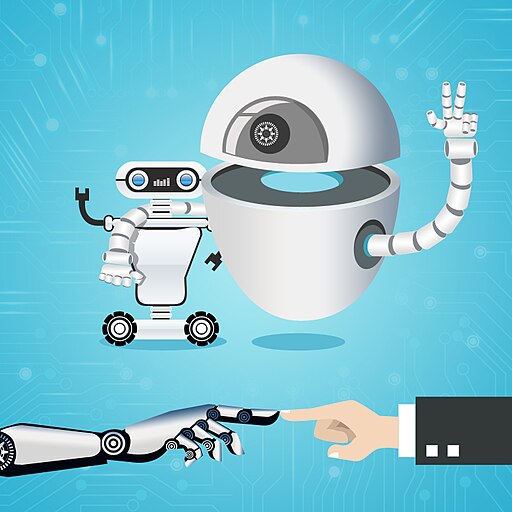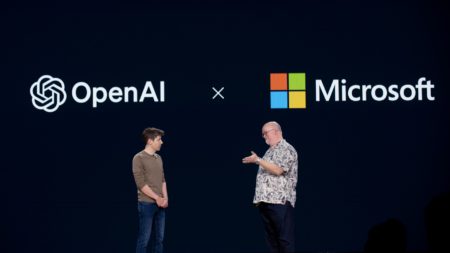…the average American, I think, has fewer than three friends. And the average person has demand for meaningfully more, I think it’s like 15 friends or something, right?
– Mark Zuckerberg, presumably to one of his three friends
Since even the President of the United States is using ChatGPT to cheat on his homework and make bonkers social media posts these days, we need to have a talk about AI.
Right now, AI is being shoe-horned into everything, whether or not it makes sense. To me, it feels like the dotcom boom again. Millipedes.com! Fungus.net! Business plan? What business plan? Just secure the domain names and crank out some Super Bowl ads. We’ll be RICH!
In fact, it’s not just my feeling. The Large Language Model (LLM) OpenAI is being wildly overvalued and overhyped. It’s hard to see how it will generate more revenue while its offerings remain underwhelming and unreliable in so many ways. Hallucination, bias, and other fatal flaws make it a non-starter for businesses like journalism that must have accurate output. Why would anyone convert to a paid plan? Even if there weren’t an income problem—even if every customer became a paying customer—generative AI’s exorbitant operational and environmental costs are poised to drown whatever revenue and funding they manage to scrape together.
Lest we think the problem is contained to OpenAPI or LLMs, there’s not a single profitable AI venture out there. And it’s largely not helping other companies to be more profitable, either.
A moment like this requires us to step back, take a deep breath. With sober curiosity, we gotta explore and understand AI’s true strengths and weaknesses. More importantly, we have to figure out what we are and aren’t willing to accept from AI, personally and as a society. We need thoughtful ethics and policies that protect people and the environment. We need strong laws to prevent the worst abuses. Plenty of us have already been victimized by the absence of such. For instance, one of my own short stories was used by Meta without permission to train their AI.
The Worst of AI
Sadly, it is all too easy to find appalling examples of all the ways generative AI is harming us. (For most of these, I’m not going to provide links because they don’t deserve the clicks):
- We all know that person who no longer seems to have a brain of their own because they keep asking OpenAI to do all of their thinking for them.
- Deepfakes deliberately created to deceive people.
- Cheating by students.
- Cheating by giant corporations who are all too happy to ignore IP and copyright when it benefits them (Meta, ahem).
- Piles and piles of creepy generated content on platforms like Youtube and TikTok that can be wildly inaccurate.
- Scammy platforms like DataAnnotation, Mindrift, and Outlier that offer $20/hr or more for you to “train their AI.” Instead, they simply gather your data and inputs and ghost the vast majority of applicants. I tried taking DataAnnotation’s test for myself to see what would happen; after all, it would’ve been nice to have some supplemental income while job hunting. After several weeks, I still haven’t heard back from them.
- Applicant Tracking Systems (ATS) block job applications from ever reaching a human being for review. As my job search drags on, I feel like my life has been reduced to a tedious slog of keyword matching. Did I use the word “collaboration” somewhere in my resume? Pass. Did I use the word “teamwork” instead? Fail. Did I use the word “collaboration,” but the AI failed to detect it, as regularly happens? Fail, fail, fail some more. Frustrated, I and no doubt countless others have been forced to turn to other AIs in hopes of defeating those AIs. While algorithms battle algorithms, companies and unemployed workers are all suffering.
- Horrific, undeniable environmental destruction.
- Brace yourself: a 14 year-old killed himself with the encouragement of the chatbot he’d fallen in love with. I can only imagine how many more young people have been harmed and are being actively harmed right now.
The Best of AI?
As AI began to show up everywhere, as seemingly everyone from Google to Apple demanded that I start using it, I had initially responded with aversion and resentment. I never bothered with it, I disabled it wherever I could. When people told me to use it, I waved them off. My life seemed no worse for it.
Alas, now AI completely saturates my days while job searching, bringing on even greater resentment. Thousands of open positions for AI-based startups! Thousands of companies demanding expertise in generative AI as if it’s been around for decades. Well, gee, maybe my hatred and aversion is hurting my ability to get hired. Am I being a middle-aged Luddite here? Should I be learning more about AI (and putting it on my resume)? Wouldn’t I be the bigger person to work past my aversion in order to learn about and highlight some of the ways we can use AI responsibly?
I tried. I really tried. To be honest, I simply haven’t found a single positive generative AI use-case that justifies all the harm taking place.
So, What Do We Do?
Here are some thoughts: don’t invest in generative AI or seek a job within the field, it’s all gonna blow. Lobby your government to investigate abuses, protect people, and preserve the environment. Avoid AI usage and, if you’re a writer like me, make clear that AI is not used in any part of your process. Gently encourage that one person you know to start thinking for themselves again.
Most critically of all: wherever AI must be used for the time being, ensure that one or more humans review the results.
Your journey to .NET 9 is more than just one decision.Avoid migration migraines with the advice in this free guide. Download Free Guide Now!
Source: Read MoreÂ



